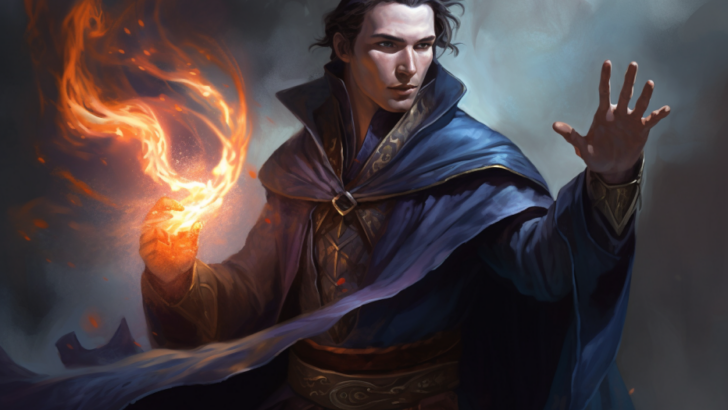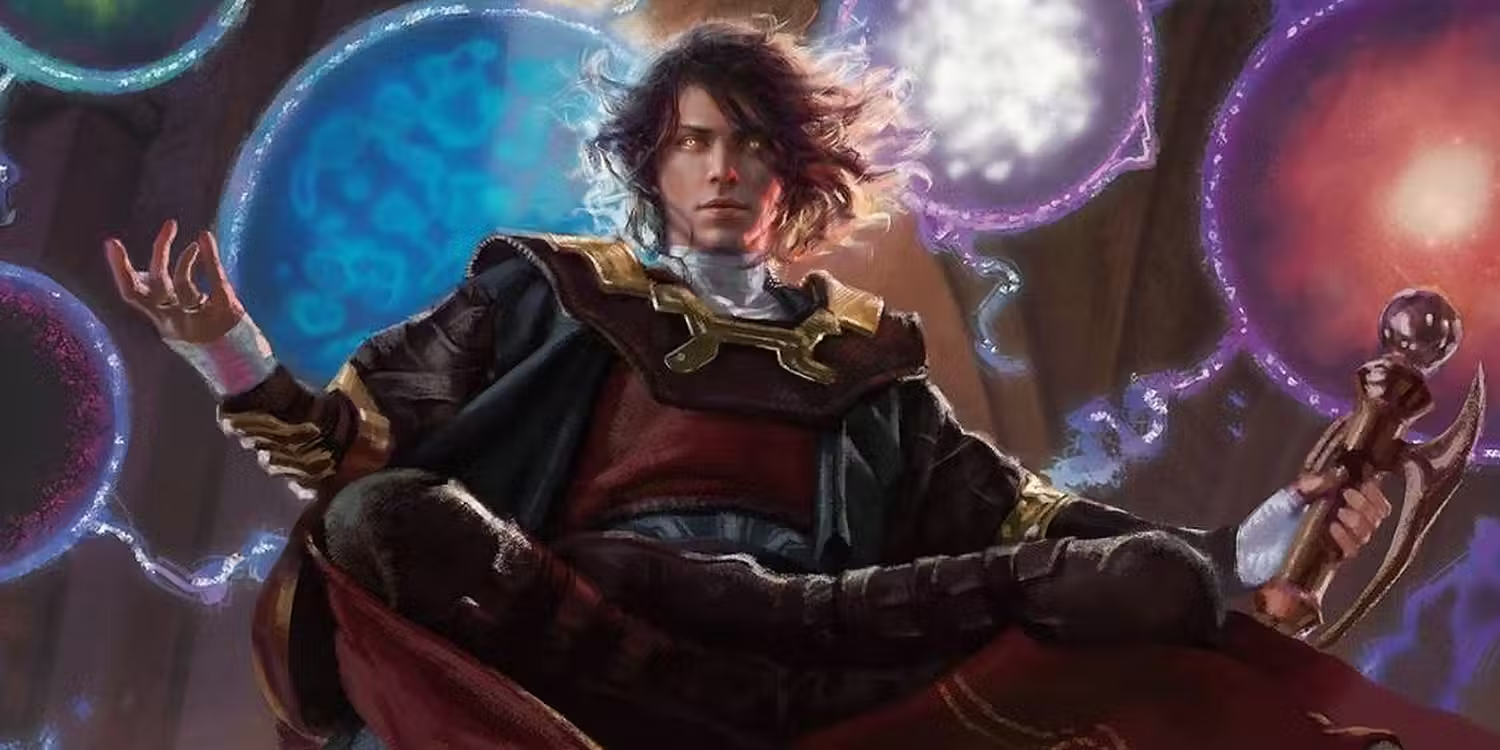
Wizards are the quintessential spellcasters in Dungeons and Dragons, embodying the power of arcane magic through careful study, intellect, & mastery of the arcane arts. As full spellcasters, they have access to a vast array of spells that define their capabilities & play style. While their class features are significant, it’s the spell selection that truly shapes a wizard’s role in the party.
In this guide, we’ll dive into the wizard’s core features, ability scores, spellbook mechanics, & build options to help you create a powerful arcane caster for your next D&D campaign.
Check Out These Recent Board Game Sales
- Board Game Sale: Disney Villainous 25% Off!
- Board Game Sale: Marvel: Crisis Protocol Core Set 30% Off!
- Board Game Sale: 7 Wonders Available for 17% Off!
Core Class Features
Wizards start with a d6 hit die, meaning they begin with 6 hit points at first level & gain 4 hit points per level thereafter. Their primary saving throws are Intelligence & Wisdom, protecting them against certain mental effects. Wizards can choose two skills from a list that includes Arcana, History, Insight, Investigation, Medicine, Nature, & Religion, with Arcana & Investigation being popular choices to reflect their scholarly nature.
In combat, wizards are limited to simple weapons & lack armor proficiencies, making them vulnerable in physical confrontations. However, their magic more than makes up for this weakness, allowing them to control the battlefield & obliterate foes from a distance.
Spellcasting & the Spellbook
Spellcasting is the heart of the wizard class. Wizards begin with three cantrips & two 1st-level spell slots, eventually gaining access to powerful 9th-level spells. Intelligence is their spellcasting ability, determining the spell save DC & spell attack bonus. Wizards regain all expended spell slots after a long rest, & their adaptability shines through in their ability to learn new spells & change their prepared spells between adventures.
Wizards maintain a spellbook that contains all the spells they know. At 1st level, they start with six 1st-level spells in their book, & each day, they prepare a number of spells equal to their Intelligence modifier plus their wizard level. This system allows wizards to have a wide range of spells available, but it requires careful planning to ensure they have the right spells for the challenges ahead.
A key feature of wizards is their ability to add spells to their spellbook by finding spell scrolls or other wizards’ spellbooks during their adventures. Copying spells into their spellbook takes time & gold, with higher-level spells being more expensive to transcribe.
Arcane Recovery
Arcane Recovery allows wizards to regain some expended spell slots during a short rest once per day. The number of spell slots recovered is equal to half their wizard level, rounded up. This feature provides wizards with additional magical resources, helping them last longer in prolonged encounters.
Scholar & Spell Mastery
At 2nd level, wizards gain the Scholar feature, granting them expertise in one of their chosen skills, such as Arcana or History, further enhancing their magical knowledge.
At higher levels, wizards gain significant powers like Spell Mastery at 18th level, allowing them to cast two 1st- or 2nd-level spells without expending spell slots. At 20th level, they can cast two chosen 3rd-level spells once per short rest without using spell slots, making them even more formidable as the campaign progresses.

Ability Score Allocation
As an Intelligence-based class, wizards should prioritize Intelligence to maximize their spellcasting capabilities. Constitution is also critical for boosting hit points & maintaining concentration on spells. Dexterity is a solid tertiary choice to improve AC & initiative.
A typical point buy for a wizard might look like this:
- Intelligence: 15 (+2 from background)
- Constitution: 14 (+1 from background)
- Dexterity: 13
- Strength: 8
- Wisdom: 12
- Charisma: 10
Wizard Builds
The Blaster
The Blaster wizard focuses on dealing damage with powerful spells like Fireball & Lightning Bolt. This build prioritizes Intelligence for spellcasting & Constitution to help maintain concentration on spells. Feats like Elemental Adept can help increase damage output.
The Controller
The Controller wizard manipulates the battlefield, using spells like Hold Person, Web, & Wall of Force to incapacitate or hinder enemies. This build emphasizes Intelligence & Dexterity for quick reactions, making battlefield control even more effective.
The Supporter
Supporter wizards focus on protecting & buffing allies with spells like Haste, Counterspell, & Shield. Intelligence remains the primary stat, while Constitution helps keep them alive in tough encounters. Feats like War Caster enhance concentration on important spells.
Background Choices
Choosing the right background for your wizard can provide valuable bonuses. The Sage background is a classic choice, enhancing Intelligence & providing useful skills like Arcana & History. Other backgrounds, such as Criminal or Charlatan, offer interesting role-playing opportunities & provide bonuses to skills like Stealth or Deception, which can complement certain builds.
Multiclassing Options
While wizards are potent on their own, multiclassing can create intriguing combinations:
- Wizard/Cleric: A blend of divine & arcane magic for support & healing.
- Wizard/Sorcerer: Augmenting spell versatility with innate sorcerous powers.
- Wizard/Fighter: A gish build that can use magic & martial combat.
Wizards in Dungeons and Dragons offer one of the most versatile & rewarding experiences in the game. Whether you’re raining down destruction as a Blaster, controlling the battlefield as a Controller, or supporting your party as a Supporter, the wizard’s ability to adapt makes them indispensable. With a vast spell list, flexible preparation system, & features like Arcane Recovery & Spell Mastery, wizards can shape any adventure through the sheer force of their intellect & arcane mastery.
Don’t be afraid to experiment with different builds & strategies—wizards are all about adaptability, & there’s no limit to the creative possibilities they can bring to the table.
At no extra cost to you, The Board Game Site may receive revenue from affiliate and advertising partnerships for sharing this content and from purchases through links.








